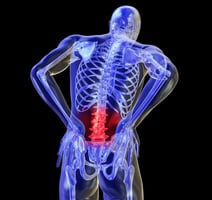Cognitive Function May Predict Development of Chronic Pain, New Study Finds
 |
The study cohort included 189 subjects aged 18 to 85 who were about to undergo one of two operations—either knee replacement because of osteoarthritis or breast cancer surgery. The researchers measured attention, memory, and executive function in the subjects before surgery, then followed them for a year. Impairment in attention, memory, or executive function before surgery significantly predicted clinically meaningful pain six or 12 months after surgery in both groups of patients, even when the presence of anxiety, depression, or pain before surgery were considered.
"This is an interesting study," Michael Clark, M.D., an associate professor of psychiatry and director of the Pain Treatment Program at Johns Hopkins Medical Institutions, said in an interview with Psychiatric News. "I think that the determination of risk factors that predict the development of chronic pain is an important area.... [The results] highlight the need to take extra care in the management of acute pain for individuals with existing neurological disorders to decrease the risk of persistent pain after surgery. In addition, given that chronic pain management often focuses on improving coping skills, these results support the use of cognitive training to facilitate the development of more effective therapies for reaching functional goals in rehabilitation programs."
More information about the interface between psychiatry and chronic pain can be found in the Psychiatric News articles "Psychiatrists Have Multiple Roles in Treating Chronic Pain" and "Psychiatrists' Expertise Useful in Managing Chronic Pain" as well as in the American Psychiatric Publishing book "Clinical Manual of Pain Management in Psychiatry."
(Image: Design 36/Shutterstock.com)





